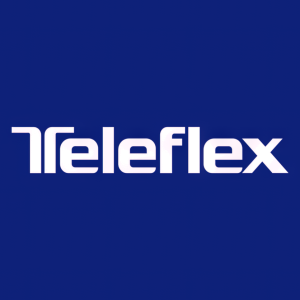Institutional Stake: Janus Henderson Enterprise Fund Owns 6.5% of Teleflex (TFX)
Rhea-AI Filing Summary
Janus Henderson Group plc is disclosed as a beneficial owner of Teleflex Incorporated common stock, reporting an aggregate 4,149,271 shares representing 9.4% of the class. The filing indicates no sole voting or dispositive power and instead reports shared voting and dispositive power over the reported shares.
The Janus Henderson Enterprise Fund is shown holding 2,885,870 shares (6.5%) with shared voting and dispositive power. The filing includes a certification that the shares were acquired and are held in the ordinary course of business and not to influence control. The document is signed by Kristin Mariani and contains a power of attorney authorizing certain officers to execute ownership filings.
Positive
- Janus Henderson Group plc reports a 9.4% beneficial ownership (4,149,271 shares) in Teleflex, a material institutional holding above the 5% threshold
- Janus Henderson Enterprise Fund holds 2,885,870 shares (6.5%), demonstrating additional institutional interest
Negative
- No sole voting or dispositive power is reported (0 shares), indicating no direct control asserted by the reporting persons
- Numeric discrepancy noted within the filing: one section lists 4,149,271 shares while another section lists 4,130,214 shares for related holdings
Insights
TL;DR: Janus Henderson discloses a material 9.4% passive stake in Teleflex, held with shared voting power and a certification of ordinary-course holdings.
The Schedule 13G/A shows a notable institutional holding: 4,149,271 shares (9.4%). That exceeds the 5% reporting threshold and is therefore material for disclosure, but the filing reports 0 shares of sole voting or dispositive power, indicating no direct control claim. The disclosure also records a 6.5% position (2,885,870 shares) held by Janus Henderson Enterprise Fund. The certification states the positions are held in the ordinary course of business and not for the purpose of changing control.
TL;DR: A 9.4% stake is meaningful for governance watchers but the absence of sole voting power limits immediate control implications.
From a governance perspective, the filing is significant because it documents a substantial institutional stake that must be monitored for any future shifts in voting alignment. The reported shared voting/dispositive power suggests collective or advisory control structures rather than direct unilateral influence. The form also includes a power of attorney authorizing company officers to file ownership reports, which clarifies procedural filing authority. Note the filing contains two close but different aggregate numbers in separate sections which may merit reconciliation by users seeking precise holdings.








